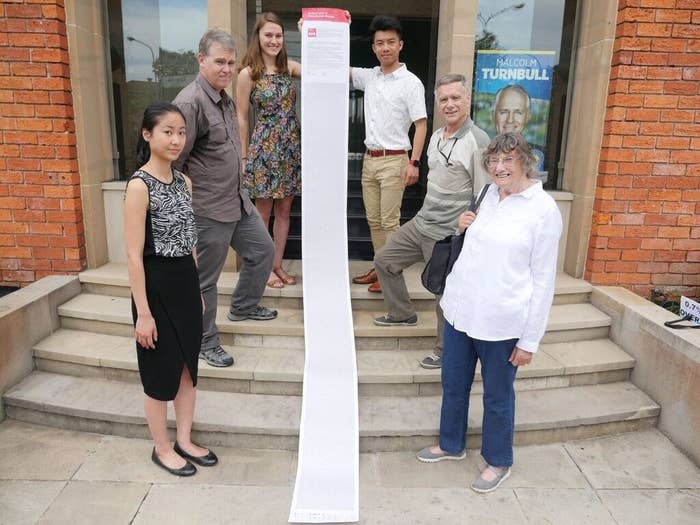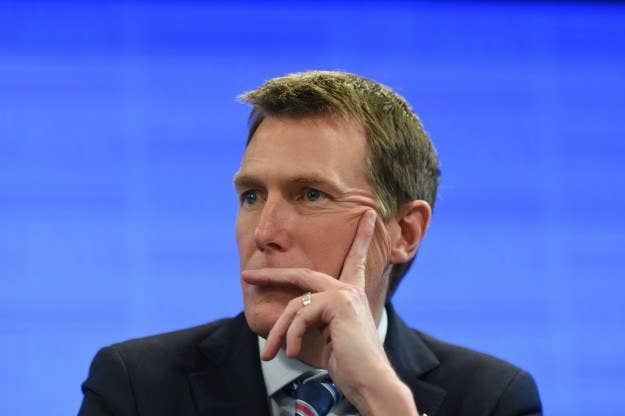More than 8,000 people and 65 organisations have signed a 3.5 metre high letter to prime minister Malcolm Turnbull calling on the government to do more to fight poverty.

The open letter, which coincides with anti-poverty week, is co-signed by Australian Council of Social Service (ACOSS) CEO Dr Cassandra Goldie and Australian Aid campaign director Tony Milne.
"It is unacceptable that after 20 years of economic growth, our wealthy nation has not made real progress in reducing poverty," the letter reads.
There are an estimated 2.9 million people, or 13.3% of the population, living below the poverty line in Australia, and child poverty has increased in the last decade, according to Australian Aid.
The letter notes that to date, "no national definition of poverty has been adopted by the government".
"We urge it to adopt the OECD poverty line, set at 50% of median income."
Social services minister Christian Porter says raising welfare payments isn't a solution to poverty.

"Even if welfare payments were doubled, recipients would still live in poverty… welfare dependence is poverty," he said. "And the only escape from poverty is a job."
The department of social services told BuzzFeed News there is no national definition of poverty because governments (and usually oppositions) of all political persuasions have "long been at pains to avoid setting any official poverty line or poverty target".
"The reason for this is precisely because poverty is innately multidimensional with complex causes and remedies," a departmental spokesperson told BuzzFeed News.
"Directing policy towards meeting a target for any single measure – especially such a very partial approach as a relative income poverty line – would mean aiming at things that are easy to measure rather than at the things that matter more but are harder to measure – such as opportunity, capability and participation."
The department denies there has been an increase in child poverty in the last decade, saying the "the rate of children living in households 'in poverty' increased modestly from 2003 to 2007, and has fallen slowly since".
“The 3.5 metre letter might be twice the height of the prime minister, but it’s not as long as the list of people here in Australia, and the 836 million people globally, who live in poverty today," Milne told BuzzFeed News.
The Campaign for Australian Aid is a joint initiative of the Make Poverty History and Micah Australia coalitions, which represent more than 65 aid and development organisations, churches, businesses and community groups.
"No Poverty by 2030 is one of the 17 United Nations Sustainable Development Goals that the Australian government signed up to in 2015. It is a common goal which applies here in Australia and around the world," Milne said.
"People designed the rules that created the poverty crisis, so we can make different choices and change those rules to reverse it."
"To start tackling the scourge of poverty, the government should increase the unemployment payment in Australia, which currently sits below the poverty line, and increase overseas aid funding from the lowest it has ever been."
Experts say we can get close to eradicating extreme poverty by 2030 if countries co-operate, but while other countries are increasing overseas aid, the Australian government has cut aid to the lowest it's ever been.
The open letter calls for an increase to aid funding towards our global promise of 70 cents in every $100 of our gross national income.

Foreign minister Julie Bishop says the government is committed to delivering "an affordable and effective aid program that reduces poverty and promotes sustainable economic growth, particularly in our immediate region where over 90% of Australia’s foreign aid is now spent".
Bishop told BuzzFeed News that Australia is the 12th largest donor in the OECD and remains committed to achieving the Sustainable Development Goals.
